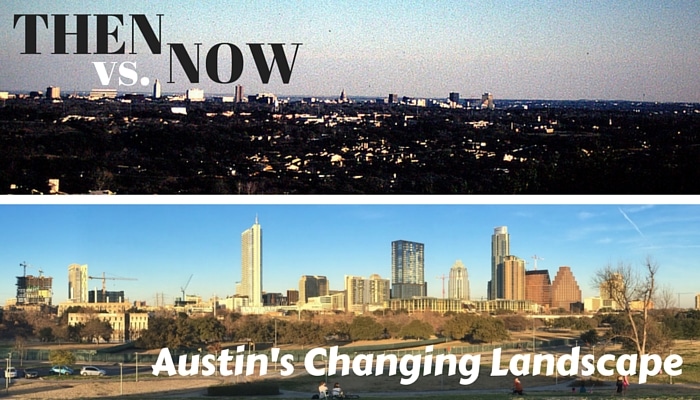
The city of Austin is making news daily. It has appeared in more Top 10 lists than I can reference. But with all these accolades come the naysayers. So today, I want to try something different. I’m not going to rant, rave or try to discourage people from moving here (or convince them to move here, for that matter). Instead, I hope to encourage all of you to support and love the city in which you live. Support small business, your neighbors, strangers and local art. Actively participate in the city you call home–don’t just use it.
I want to take you on a journey back to where it all began, then we’ll come back to the future to see where Austin is headed. Each and every one of you play a role in our community as our city continues to grow. If we go back to the beginning together, hopefully we can end up at the same spot.
Endangered Austin Hippie
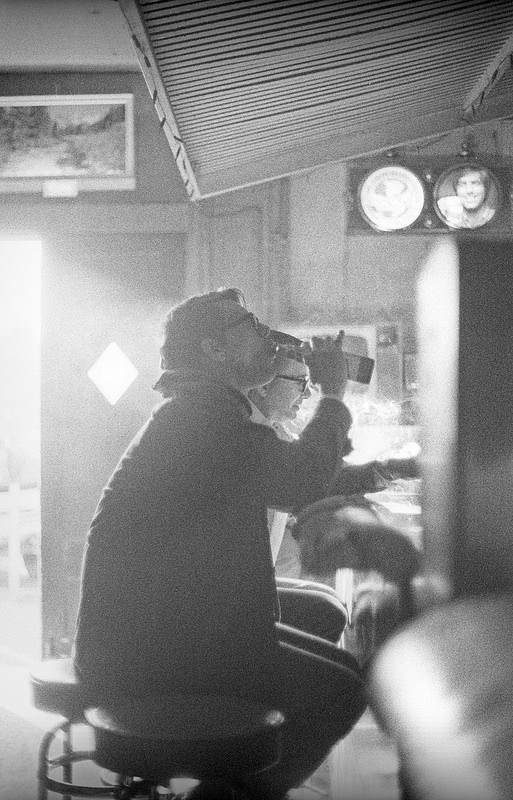
The Lounge on Congress, 1977 (Credit: Wnewton1948 via Flickr CC)
My original article idea was to talk about the “Endangered Austin Hippie.” I wanted to write a tongue in cheek article about the two-steppin-pot-smokin-drum-beatin-Barton-Spring-Pool-swimmin hippies of yesteryear. But it dawned on me one evening, when I was at Barton Springs howling at the full moon, that those types of “hippies” still exist.
So then I got thinking, why does the city “feel” different? Is what makes Austin so appealing today the same things that made it appealing 20, 30, 50 years ago? And moreover, what do we risk losing if we don’t make a conscious group effort to keep that je ne sais quoi alive? I knew I needed to find someone who has lived in Austin long enough to not only give me historical context, but who could also speak frankly about the city.
Enter Winston Shipman. Winston is a recently retired man who has been in Austin since 1973. He wouldn’t consider himself an Austin Hippie as much as a “lake hippie,” since he wasn’t big on smoking pot and lived out on Lake Travis, which in the 70’s was largely undeveloped. I actually like to think of Winston as a member of the “Austin Underground” crowd.
Austin Underground is what I like to call the people who work in the service industry. It’s the “hidden” and sometimes overlooked network of people who make a city tick. The waiters, baristas, chefs, taxi drivers, etc. The ones who really make the city, any city, come alive.
Not only had Winston owned a restaurant, The Courtyard, from 1979-1991, but he also worked in restaurants such as the Four Seasons. Since he has seen the many faces of Austin, when I sat down to talk with him about Austin hippies, cowboys and growth, he had a lot to say.
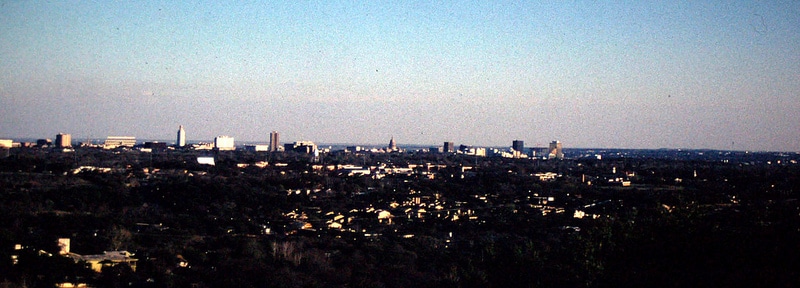
Austin skyline circa 1978 (Credit: Wnewton1948 via Flickr CC)
Then vs. Now
According to Winston–and many would agree–one of the main things that gave Austin its unique vibe was the Armadillo World Headquarters. This was where hippies and cowboys gathered on common musical ground. There was no animosity between groups. No barriers. The hippies knew how to dance the Cotton Eyed Joe and the cowboys smoked pot. The common thread between them was the music.
As we talked about the ‘Dillo, I thought maybe I wasn’t supposed to ask, “Where have all the hippies gone?” but rather, “Where have all the cowboys gone?” Maybe Paula Cole was onto something 20 years ago.
So I asked Winston how he would define the quintessential Austinite then vs. now. He didn’t miss a beat and answered, “Well, now it’s your techie, politician, developer. Someone who cares about money. Austin was just a laid back, small town back then,” he shared. “Folks weren’t so political or focused on money. Back then it was just about drinking, smoking and good times. And the minute things started to grow, the small town folks started to go into hiding.”
And that’s when it finally hit me. It’s not the city that’s changing, per se, but society in general. The Austin hippies aren’t endangered, but their environment is. And this problem is not exclusive to Austin. In the past 20 years, technology has changed the way we do everything. Small towns are no longer “small” as the Internet virtually connects them to surrounding big cities. Things change so quickly that we don’t even have time to process one change before something else changes.
All Is Not Lost
Just like there will never be another band like the Beatles, there will never be another Austin of the 1970’s. And that’s okay. So what next? Do we bring back the cowboys? Again, while Austin is not immune to progress and change, we need to realize that we have a say in the direction our city grows. The essence of the “Keep Austin Weird” mentality still exists in pockets around Austin, and it’s our job to keep those communities alive.
As I said when I started this article, we need to continue to support local businesses and people. One of the easiest ways to do that is by supporting local artists. And I’m not just talking about music, but film, art, sculpture, literature and dance. Another way is to shop local. Make a conscious effort to drive the extra mile or spend the extra dollar because, ultimately, it comes down to three things:
- If you don’t like it here, move.
- If you like it here but only complain, stop.
- If you must complain, offer a solution.
It’s that simple.
And that’s why we do what we do at The Austinot. We’re a group of passionate (volunteer) writers who love this city. We focus on local Austin business and people.
It’s about loving where you are and supporting those around you. We’re not trying to convince people to move here–they’re doing that on their own. However, we do want to encourage everyone who moves here to choose Summermoon over Starbucks, and Hopdoddy over McDonald’s.
@jpino9 wants to know:
In what ways do you support local business and communities?
- Hiking in Austin – 9 Best Hike Trails & Hiking Spots - August 13, 2021
- Guide to Austin’s East Sixth Street - February 25, 2020
- Austin’s Best Bazaars, Fairs, and Markets for Your Holiday Shopping - November 26, 2019

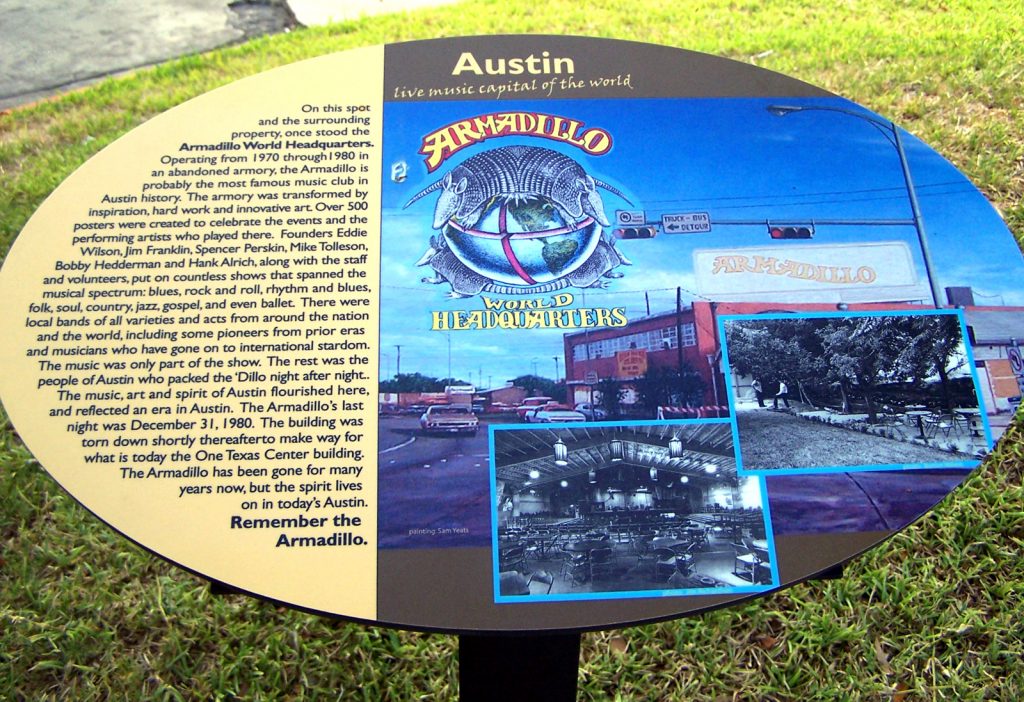
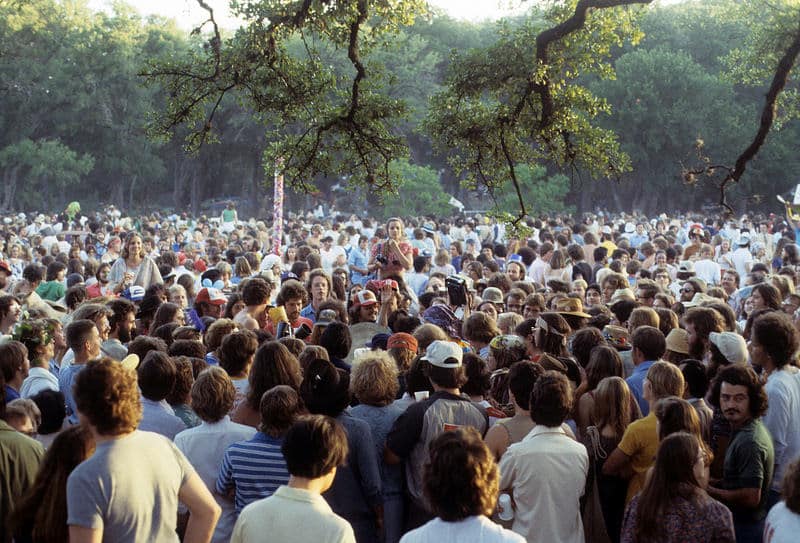
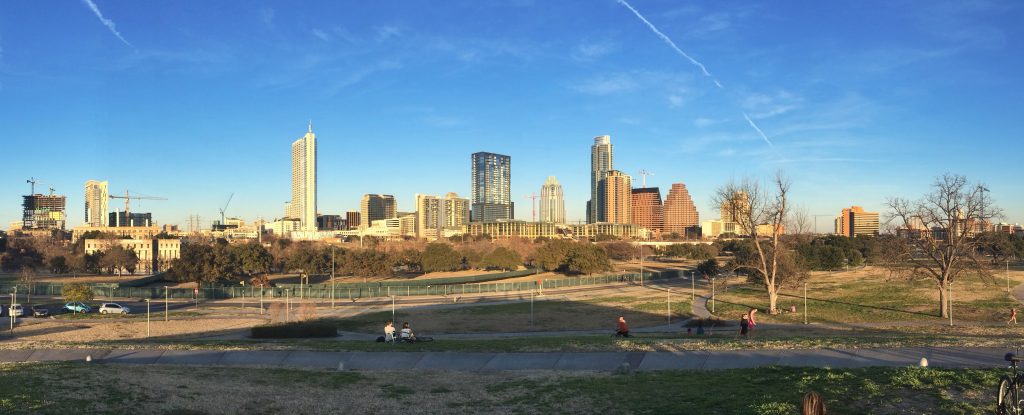
I’ve lived in Austin since 1964 because I was almost born here, but not quite. Wow has it changed! My husband and I have an ongoing discussion about Austin’s growing pains. I reminisce about old Austin and how I miss the smallness of it. He loves that it’s a bustling, thriving economy (he owns his own business). I try really hard to shop local – that’s huge for me and I think it’s so important to any town. One thing I love about Austin is that, then or now, everyone is generally happy and nice when you meet them. Most people love being here. How many big cities can really say that? Aside from traffic (my only real complaint is they should have developed a rail system many years ago, hello!), what’s not to like?
So, you think doing it with high rises like Hou and Dal is what you ought to do? Can’t even see the Capitol unless you line up with one of the sliver views just right
Nailed it!